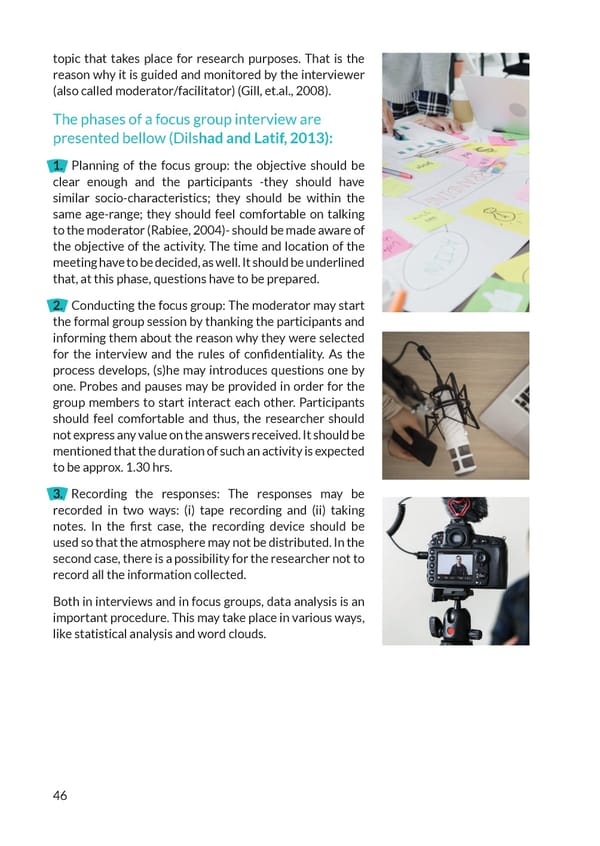topic that takes place for research purposes. That is the reason why it is guided and monitored by the interviewer (also called moderator/facilitator) (Gill, et.al., 2008). The phases of a focus group interview are presented bellow (Dilshad and Latif, 2013): 1. Planning of the focus group: the objective should be clear enough and the participants -they should have similar socio-characteristics; they should be within the same age-range; they should feel comfortable on talking to the moderator (Rabiee, 2004)- should be made aware of the objective of the activity. The time and location of the meeting have to be decided, as well. It should be underlined that, at this phase, questions have to be prepared. 2. Conducting the focus group: The moderator may start the formal group session by thanking the participants and informing them about the reason why they were selected for the interview and the rules of confidentiality. As the process develops, (s)he may introduces questions one by one. Probes and pauses may be provided in order for the group members to start interact each other. Participants should feel comfortable and thus, the researcher should not express any value on the answers received. It should be mentioned that the duration of such an activity is expected to be approx. 1.30 hrs. 3. Recording the responses: The responses may be recorded in two ways: (i) tape recording and (ii) taking notes. In the first case, the recording device should be used so that the atmosphere may not be distributed. In the second case, there is a possibility for the researcher not to record all the information collected. Both in interviews and in focus groups, data analysis is an important procedure. This may take place in various ways, like statistical analysis and word clouds. 46
 MemoryHandbook new Page 45 Page 47
MemoryHandbook new Page 45 Page 47